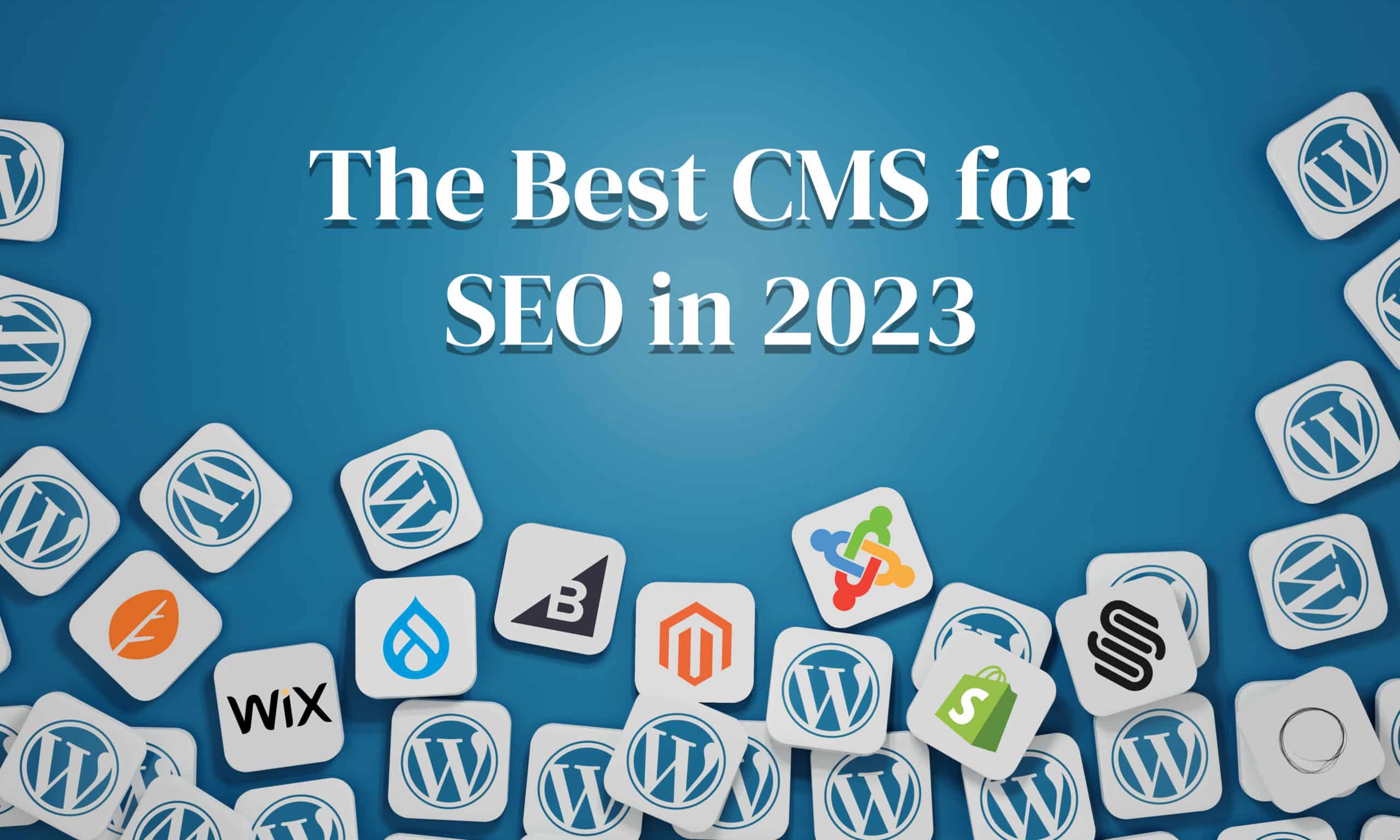
What is a content management system?
The best CMS for SEO in 2023: A content management system (CMS) is an application used to manage digital content, most often used for websites or other online platforms that continuously need updates. Content in a CMS can include text, images, audio, video, and other forms of digital media.
A content management system allows a user-friendly way to keep track of content over time. It can be used to quickly update or change content when needed, which is why CMSs like WordPress power nearly 37% of websites online today. It is designed to make it easier for non-technical users to create, manage, store, and publish various types of digital content.
A CMS usually consists of two parts — a back-end interface that only administrators and editors can access and a front-end interface that visitors can access. The back end usually consists of tools allowing users to create new pages and change existing ones from the dashboard. The front end is the public-facing side that anyone can view; it is made with HTML and CSS files created through the CMS.
CMSs are vital because they allow websites or applications to be managed with minimal effort and time spent on code editing or manual changes. Instead, users can use the CMS's back-end features, such as drag-and-drop builders, page settings, themes and plug-ins, revision control systems, page structures, menus, and navigation systems, without writing code independently. This efficiency allows organizations with limited technical resources to create powerful digital experiences quickly.
CMSs are used by small businesses all the way up to Fortune 500 companies for building out websites or applications quickly and efficiently. With its combination of user-friendliness and flexibility for customization, CMSs provide an optimal solution for managing any website or application regardless of size or complexity.
How does a CMS affect SEO?
A CMS can have a significant impact on SEO in several ways. Firstly, it can provide users with the tools they need to create optimized content for search engines. For example, many CMSs have built-in features like text editors and page builders that enable users to create pages with targeted keywords and relevant metadata. This can help ensure that the content is correctly indexed by search engines, which can result in higher rankings.
SEO-specific plugins like Rank Math are designed to help users achieve maximum search engine optimization with minimal knowledge or effort, all while integrating seamlessly into WordPress (if you couldn't already tell, we love WordPress at Beyond Blue Media).
Additionally, a CMS can make it easier for users to keep their website up-to-date with fresh content. Search engines prioritize websites with regularly updated content, so having a CMS makes it much easier to publish new articles or pages quickly. This enables users to take advantage of new trends or news stories and helps them get ahead of their competition in terms of ranking on search engine result pages (SERPs).
Many CMSs also come with built-in analytics tools which allow users to monitor their website’s performance on SERPs. This helps them keep an eye on their rankings and adjust their website accordingly to stay ahead of their competition in terms of SEO performance.
A high-quality content management system is essential for any website owner looking to maximize their SEO potential. They provide the tools necessary for creating optimized content and keeping track of rankings through analytics tools – both key components necessary for any successful SEO strategy.
Popular content management systems
Many content management systems are available on the market, each offering different features and capabilities, so it’s essential to research each before deciding which is best for your business needs. But not to worry, we will cover the pros and cons of each system in this post.
Everyone can benefit from using a CMS as it allows them to create and maintain a website without learning complex coding languages. Many CMSs also come with hosting packages that make setting up a website more accessible and cost-effective than a manual setup.
With the right content management system, anyone can quickly create and manage a professional website without breaking the bank. So, let's get into some of the most popular content management systems on the market:
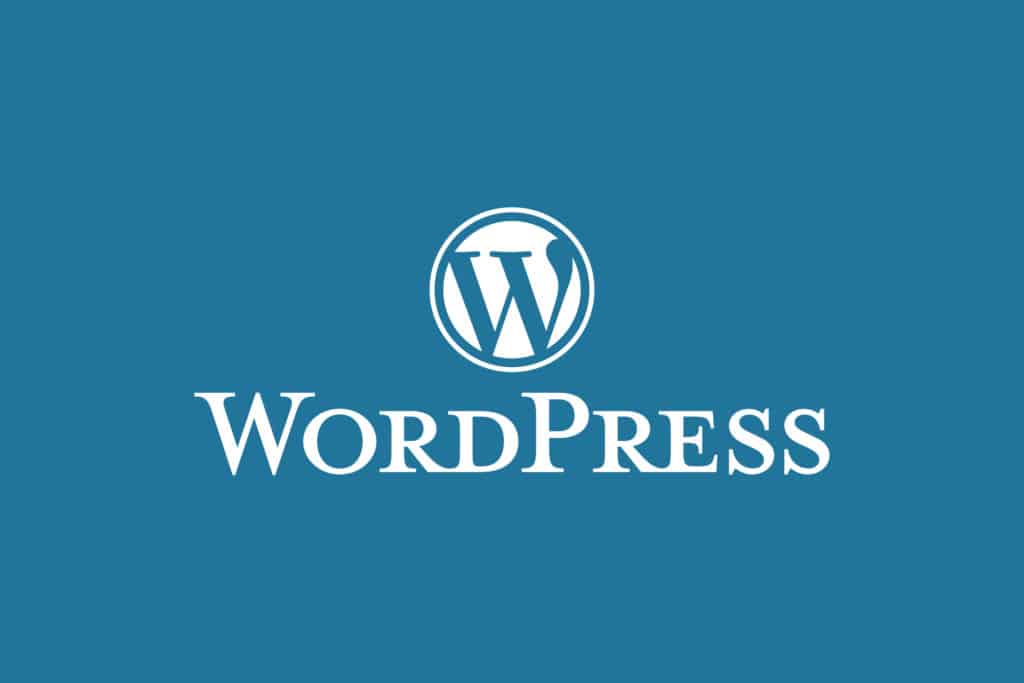
1. WordPress
WordPress is an excellent platform because it has many features designed to improve overall SEO performance. The most important feature is that WordPress is fully optimized for speed and performance out of the box, meaning that your site will not be slowed down by bulky code. There are also thousands and thousands of free and premium plugins and themes available, but be careful; too many of the wrong plugins and a poorly made theme will tank your website's speed.
WordPress also has built-in support for popular search engine optimization plugins and frameworks, such as Rank Math and All in One SEO. This means you can take advantage of these tools' power without needing an engineering degree. Another perk of WordPress is that it's incredibly customizable and can be tailored to match your specific content layout, design, and keyword targeting requirements.
But since SEO is so much more than just using the proper keywords and metadata, we recommend WordPress for its out-of-the-box speed and customizability. Using the best plugins and page builders on the market, a WordPress website is the easiest and most cost-effective way to start crushing your competition on the SERPs.
Pros
- Open-source software (free to use forever)
- Wildly customizable
- Thousand of free and premium plugins save you time and energy
- Speed is a built-in priority
- Seemingly endless options for web hosting
- SEO plugins are best-in-class
- Frequent security and stability updates/enhancements
- Page builders are better on WordPress than other CMSs
- Start selling products and services for free with no monthly cost
Cons
- Some users can get overwhelmed by the amount of customization
- Specific themes and plugins can slow your site
- Self-hosting can be complicated
- Hackers frequently target WordPress websites (security plugins can prevent attacks)
- eCommerce isn't as seamless as Shopify or Squarespace
- WordPress has a slight learning curve
- Code is written in PHP (not necessarily a con, but Node.js apps are much faster)

2. Joomla
Joomla is an open-source content management system that makes creating and managing content on your website easy as pie. It also has a variety of built-in SEO tools and features that make it easy to optimize your website for search engine visibility. With Joomla, you can set up meta tags, create sitemaps, and generate optimized URLs for every page, giving you an edge over competitors on the SERPs.
To be fully transparent, I have used Joomla for a few basic projects that did not require loads of search engine optimizations. I found the interface to be a bit underwhelming and wished there were a few more out-of-the-box features for page building. However, it is the second most popular open-source CMS, so you can be sure it is constantly updated and optimized.
Joomla also allows you to set up 301 redirects and canonical tags, ensuring that search engines correctly index your pages and not penalize you for duplicate content. If you have ever worked as an SEO, you will know that redirects can be the bane of your existence, so every little bit of automation helps.
Additionally, Joomla has several SEO-friendly features, such as HTML5 and Microdata support and automatic SEO checks that can alert you to potential SEO issues. This helps ensure that your content is optimized correctly, helping you get the most out of your SEO efforts. With Joomla, you can ensure that your website is search engine friendly, giving you the best chance of being found in the ever-evolving world of search engine algorithms.
Pros
- Numerous native content types
- Easy to use (slight learning curve)
- Great for SEO natively (without additional plugins)
- Awesome built-in caching and performance optimizations
- It's free to use
- Being open-source, your hosting options are endless
- eCommerce is free to set up with an extension (VirtueMart)
- Thousands of free and premium extensions and themes are available
Cons
- Despite being easy to use, Joomla is a lot more complex than other CMSs
- Updates are not all backward compatible
- Not as many plugins and themes as WordPress
- Joomla is run by volunteers, not professional developers who have more to lose if they screw up
- Not as popular as WordPress, which means security and stability updates don't happen as often
- Somewhat clunky interface (in my opinion)
- Popular WordPress plugins we know and love aren't available on Joomla
- Code is written in PHP (not necessarily a con, but Node.js apps are much faster)

3. Drupal
Drupal is an excellent platform for SEO because it offers a variety of ways to optimize content for search engines natively. It has built-in features such as URL aliases, meta tags, and customized page titles, making it super easy to optimize content. Drupal also provides an easy-to-use content editor, allowing users to quickly add and edit content without worrying about the technical aspects of SEO.
Additionally, Drupal provides a number of modules that can be used to customize further and improve SEO. These modules can generate sitemaps, create social media integration, and even track user interactions with content. These modules make it easy to create a comprehensive and effective SEO strategy, all without needing to leave your couch.
Like the other options mentioned here, Drupal is open-source. This means it is constantly updated with new features and improvements and is free to use. As new technologies and strategies emerge, Drupal can quickly be updated to keep up with the latest trends in SEO. This keeps your site up-to-date and competitive in the ever-changing world of search engine optimization.
Pros
- It's open source and is constantly updated by a lot of people
- Drupal focuses on accessibility for all users, regardless of their device or capabilities
- Extremely sturdy platform
- The marketplace has thousands of free and premium apps to add functionality
- It's free to use
- Hosting options are endless
Cons
- App selection is not as vast as WordPress or Joomla
- As with all open-source software, there are always security concerns
- Code is written in PHP (not necessarily a con, but Node.js apps are much faster)
- There is a steep learning curve for non-developers
- Clunky interface
- Customization is more challenging than other CMSs
- There is minimal support for people using Drupal since it is not super popular
- Not great for scaling web apps
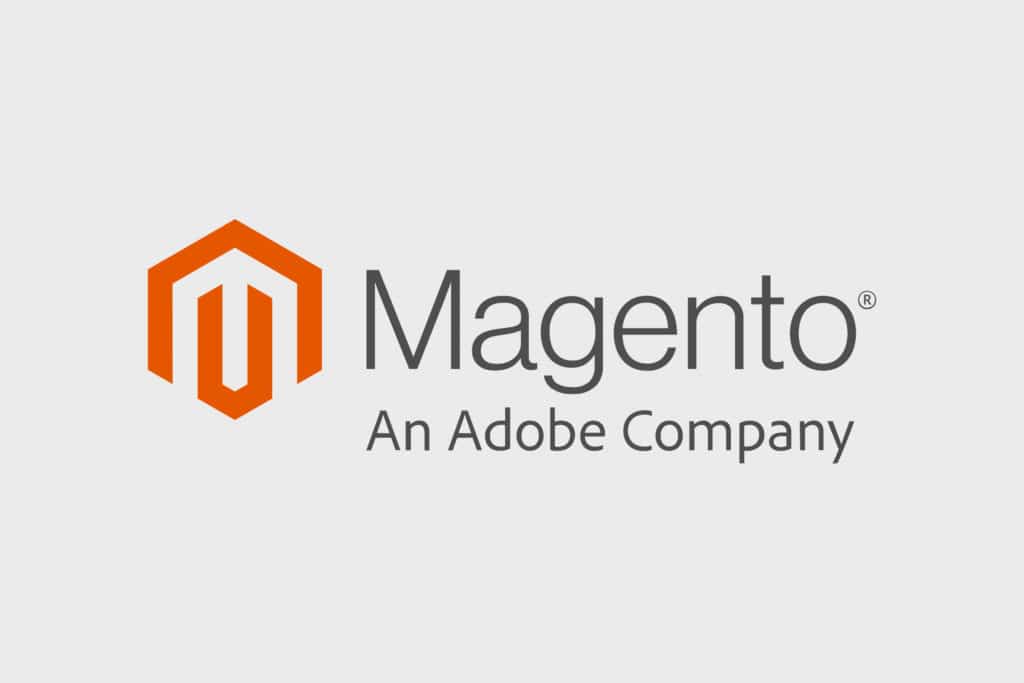
4. Magento
The first reason Magento is good for SEO is its ability to customize URLs. Magento allows store owners to customize their URLs to include keywords, making it easier for search engines to find and rank their web pages. Magento’s built-in SEO features, such as meta tags and page titles, help store owners optimize their websites for search engines.
The second reason Magento is good for SEO is its ability to create a fast and optimized site. Magento’s built-in caching and compression features help speed up page loading times, one of the hundreds of factors that can positively impact a website’s SEO ranking. Additionally, Magento’s built-in sitemaps help search engines crawl and index the website more quickly and accurately, which can further improve a website’s ranking.
Magento’s built-in analytics and reporting tools make it easy to track website performance, which can provide valuable insights into how to improve a website’s SEO ranking. Additionally, Magento’s built-in tracking tools can help store owners identify and fix any issues that could negatively impact their website’s SEO ranking.
Pros
- Users can modify the platform to suit their needs
- Supports multiple eCommerce stores and locations
- Mobile-friendly by default
- Easily scalable
- Recently purchased by Adobe (we love Adobe, so hopefully that's a good sign)
Cons
- Seriously outdated interface
- Not as well-maintained as WordPress or Joomla (maybe that will change with Adobe as the new owner)
- Plugin selection is weak compared to its competitors
- Very tricky to customize for non-developers
- Limited features compared to other eCommerce platforms
- Slightly confusing branding since Adobe's acquisition (reduces my trust level)
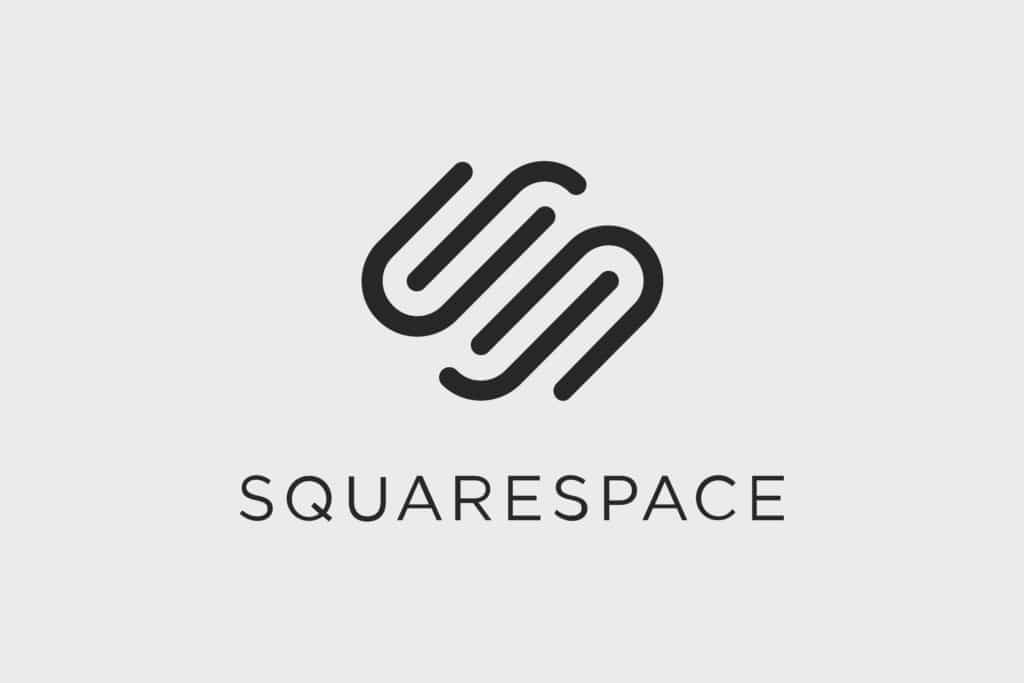
5. Squarespace
Squarespace is a popular website-building platform that makes it easy for anyone to create a website. Squarespace is good for SEO because it has a few built-in tools that help websites rank higher on SERPs. Squarespace also provides helpful guidance on optimizing a website for search engines. Additionally, Squarespace is constantly updating its platform with the latest SEO practices, which helps ensure that websites built on Squarespace are optimized for search engines.
However, Squarespace is not perfect for SEO. Squarespace websites can be challenging to customize, which can limit their SEO potential. Additionally, Squarespace websites can be slow to load, hurting their search engine rankings. Furthermore, Squarespace websites tend to be less compatible with Google’s algorithms than other website-building platforms, making it more challenging to rank.
Squarespace is an excellent platform for building a website, but is it the best CMS for SEO? Definitely not! However, by utilizing the built-in SEO tools and following the SEO guidance provided by Squarespace, it is possible to optimize a Squarespace website and achieve good search engine rankings without needing to be a full-stack web developer and SEO specialist.
Pros
- Super easy to use
- Squarespace has excellent native functionality
- Built-in themes are beautiful
- No coding required
- Modern interface
- Squarespace hosts its websites for its users, keeping in compliance with regulations and laws
- SSL certificates are free to use and automatically installed
- Images are automatically optimized
- eCommerce is easy to implement
- Technical SEO tactics are native (sitemap, metadata, etc.)
- You can get a free trial and have your whole site built before paying a dime
Cons
- Developers can get annoyed at how limited they are in terms of customization
- It costs money to use
- eCommerce plans cost more than standard plans
- Google Page Speed scores (in our experience) are very poor, which tanks SEO rankings
- Certain SEO elements, like schema, are challenging to implement

6. Shopify
Shopify is a solid platform for SEOs and small business owners alike. The platform has built-in SEO settings that allow you to customize page titles and meta descriptions and add structured data such as Open Graph tags. Shopify also provides an SEO checklist for store owners and a blog to help keep them up to date with SEO best practices.
However, Shopify can also be a hindrance to SEO efforts. The platform can be challenging to customize, connoting that a store owner may not be able to optimize their website as much as they would like. Additionally, many store owners don’t take full advantage of Shopify’s SEO features, meaning they cannot maximize their websites' potential. Furthermore, Shopify’s servers can be slow. A website hosted on the platform may not rank as highly as one hosted elsewhere.
Overall, Shopify is an excellent platform for SEO, but it has drawbacks. Store owners need to be aware of the potential limitations and stay up to date with SEO best practices to get the most out of the platform. I've used Shopify for years and can confidently say it is the best and most affordable platform for combining a great eCommerce experience with a brick-and-mortar shop.
Pros
- Best-in-class eCommerce software
- Integrates with countless third-party web apps for easy automation
- Great for small businesses looking to combine their online and brick-and-mortar stores
- Fantastic selection of free and premium themes and plugins
- Shopify websites are all hosted on their servers, always staying compliant and secure
- Developers can easily customize themes with the code editor
- Liquid (a coding language by Shopify) is incredibly easy to use and customize
- Users can sell in multiple currencies and countries with ease
- Plugins allow admins to translate their website easily to multiple languages
- Schema is masterfully generated with most themes
- Relatively inexpensive compared to other platforms with similar capabilities
Cons
- Specific themes and plugins destroy page loading times
- Currently available SEO plugins aren't as good as some WordPress SEO plugins
- Page builders are good but not great
- Slow server response times affect SERP rankings (they are a bit slower but more secure than most)
- SEO efforts can be more challenging for a non-developer
- External payment gateways incur a 2% processing fee on top of the gateway's fee

7. Wix
Wix is a popular website-building platform that is well-suited for small businesses and entrepreneurs who want to quickly and easily build a professional website. Wix is known for its "easy-to-use" drag-and-drop builder and its user-friendly templates. This makes it a great way to quickly and easily create a website that looks professional and provides an excellent user experience.
The downside to Wix is that it is not ideal for SEO. Wix offers limited options for customizing meta tags, titles, and descriptions. In addition, the platform does not allow editing pages' HTML code, which is essential for SEO. This means businesses that want to optimize their websites for SEO will not be able to do so with Wix.
At the same time, Wix does offer some SEO features that can help businesses achieve better rankings. For example, Wix allows users to create an XML sitemap, add H1 and H2 tags, and optimize images. These features can make a significant difference in improving a website’s visibility in search engine results. Additionally, Wix provides tutorials and helpful resources to assist users in optimizing their websites for SEO.
Overall, Wix is an excellent option for businesses who want to quickly and easily create a website without the hassle of coding. However, for businesses that want to optimize their website for SEO, Wix may not be the best choice. This leads me to my point: I am not a fan of Wix. For the money you spend, one would expect it to at least be strong in certain areas like SEO, but unfortunately, it is by far the worst platform for SEO that I've used to date.
Pros
- Allows businesses to build a website quickly
- Easy to integrate third-party apps like Zapier to automate tasks
- That's about it, to be honest
Cons
- Terrible for SEO in all capacities
- The interface is wildly complicated and not user-friendly
- Website loading times are relatively poor
- Themes are generally pretty ugly (yes, I know that is subjective)
- The cost is not justified by any valuable features when it comes to SEO
- Limited apps to add functionality
- Wix feels like the bargain sofa you bought at American Furniture Warehouse

8. Ghost
If you've never heard of Ghost, don't feel bad. It is definitely one of the lesser-known CMSs because it is a little more challenging to install than other CMSs like WordPress. After all, it runs on Node.js as opposed to PHP. Additionally, Ghost CMS is what's known as a headless CMS.
A headless CMS is a content management system that provides a way to author content but does not provide a front-end display. The main difference between a headless CMS and a traditional CMS is that a headless CMS does not provide a graphical user interface (GUI) to display the content. Instead, the content is stored in a database, and an API is used to output the content in any format, typically JSON objects. This makes it possible to use the content in any web or mobile application, such as a blog, a web page, an app, a chatbot, etc.
Now, this is not entirely true when it comes to Ghost. Sure, technically speaking, Ghost can be used as a headless CMS, but it sort of cheats in that it does provide a graphical front-end interface that you can build from the back end. But that being said, users can take advantage of its API capabilities and use it as a proper headless CMS by building an entirely separate front-end platform that makes API calls and requests.
Okay, now that we know what a headless CMS is and how Ghost can be used as one, let's get into Ghost's strengths and weaknesses in the SEO department.
Ghost is designed to make creating and managing a website more accessible. Ghost CMS is often praised for its user-friendly interface, which makes it easy to create content, customize the look of a website, and optimize for search engines.
The main benefit of using Ghost CMS for SEO is that it is designed to help website owners create well-structured content that is easy to read and has a clear hierarchy. It has a built-in SEO feature that automatically adds meta tags and titles to each page and makes it easy to add SEO-friendly keywords to content.
Additionally, Ghost CMS allows website owners to customize their website's look, making it easier to create a visually appealing website that can attract more visitors (this is only true if you use Ghost as a non-headless CMS).
On the other hand, there are some drawbacks to using Ghost CMS for SEO. For example, Ghost CMS does not have many features compared to other CMSs, making it challenging to create complex SEO strategies. Additionally, Ghost CMS does not have a lot of built-in analytics tools, making it challenging to track a website's performance. Finally, Ghost CMS does not have a lot of plugins or extensions, which can make it difficult to extend the functionality of a website.
Pros
- Extremely easy to use once installed
- Built on Node.js, so it's lightning fast (seriously, the fastest CMS I've ever used)
- Great SEO-friendly permalink structure
- Built-in SEO tools
- Geared toward blogs and news outlets
- A good number of useful plugins
- Free to use when self-hosting
Cons
- Tricky to install if you are not a developer
- Since it's built on Node.js, hosting options are more limited
- If using it as a headless CMS, you need to be a developer to build the front-end GUI
- Not super popular, so it is not as feature-dense as other CMSs
- A limited number of themes
- Does not have a good selection of SEO plugins for added functionality

9. BigCommerce
Full disclaimer: BigCommerce is my least favorite CMS because even as an SEO/web developer, I find their interface extremely clunky and outdated. It does not allow me to easily do what I want without spending hours and hours of trial and error. But I will try to be as neutral as possible, so let's get to it.
BigCommerce is decent for SEO because it provides options for optimizing on-page elements like meta tags and copy, creating a sitemap, and submitting it to search engine indexes. Additionally, BigCommerce provides tools for tracking search engine performance and insights into how pages rank.
The downside to BigCommerce for SEO is that it lacks more advanced SEO features like custom canonical tags and tags for tracking structured data. Additionally, it is not as easy to customize the code of individual pages as with other eCommerce platforms, making optimizing pages for specific keywords and phrases more challenging.
Overall, BigCommerce is a fair option for SEO, as it provides many essential features to succeed in search engine optimization. However, users may want to consider other eCommerce (**cough** **cough** Shopify **cough**) platforms if they need more advanced features and customization options.
Pros
- Decent for large-scale eCommerce stores
- Allows users to edit code/create custom themes
- BigCommerce hosts all their websites, so security and compliance are strong
Cons
- The interface is clunky and outdated
- Loading times are generally slow, but this can be improved with a custom theme
- Not a good solution for non-developers
- Overall poor SEO features
- Horrible contact forms with limited customization
- Poor selection of addons for improved functionality and performance
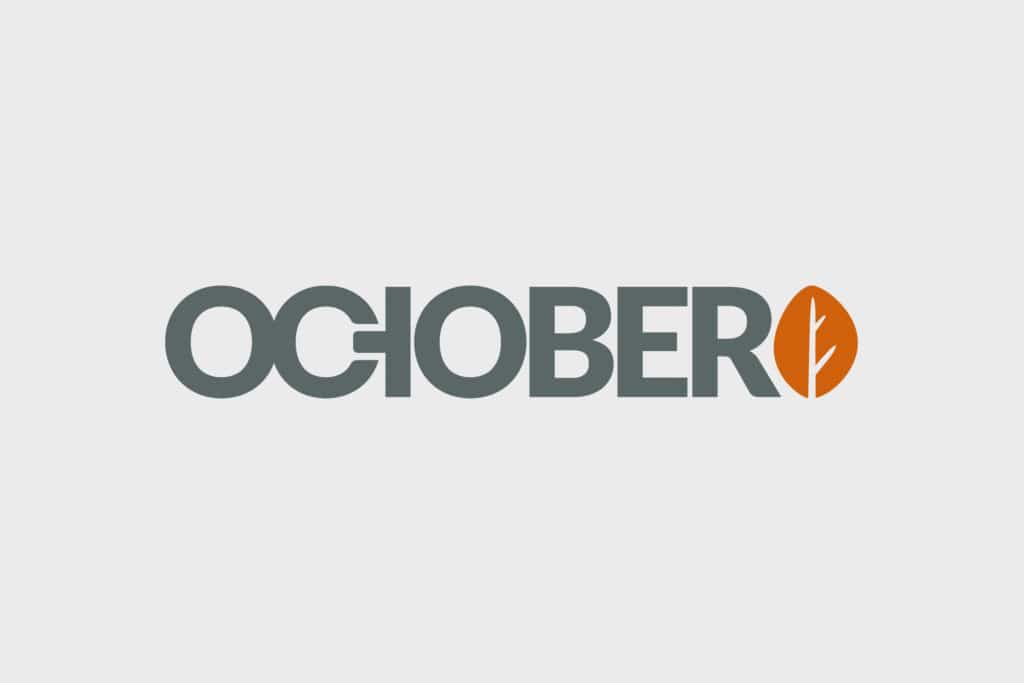
10. October
Being another underdog on the list, October CMS is one of my favorites. It is not very well known, and now I believe they make people pay to use the "open-source" software, but I still think it is one of the more solid CMSs intended for developers while eliminating the need to reinvent the wheel. Also, its name is one of my favorite months, so that's pretty cool, too (and its logo is pretty sweet).
October CMS is an excellent platform for SEO due to its robust content management capabilities and ability to integrate with various plugins and extensions. This allows for an easy way to create and manage content and redirects, meta tags, and other SEO components. October CMS also provides a great platform to track website performance, which can benefit SEO efforts.
However, there are some downsides to October CMS regarding SEO. For example, there is no built-in keyword optimization or social media integration support. Additionally, October CMS does not provide a comprehensive list of SEO tools, so if you require specific features for SEO, you may need to purchase third-party plugins or extensions or manually implement SEO-friendly tactics. Additionally, October CMS can be challenging for those unfamiliar with coding, which can lead to a lack of optimization of the website.
Overall, October CMS is an excellent platform for SEO, but it is important to be aware of the potential downsides before utilizing it for SEO purposes. It is vital to consider the website's specific needs and ensure that October can provide the necessary features and tools for successful SEO.
In summary, as a developer/SEO, I love CMSs that allow me to get my hands dirty and customize my web projects precisely as I need to without any limitations that allegedly make the software easier to use. October CMS has a great page builder that allows you to use templates and reusable parts to streamline your development. The only caveat is that there is no visual page builder. It is all done through their outstanding code editor.
So to all my non-developer friends, October CMS is definitely not for you. But, for those like me, you may fall in love with this terrific alternative to WordPress.
Pros
- Seemingly endless customization for developers
- Built with Twig templating, which is super easy to use
- Splendid interface and code editor
- Several great plugins are available to enhance functionality
- SEO can easily be achieved through manual coding
- Template/reusable part architecture
Cons
- Not a good platform for non-developers
- No longer "open-source," costs money for a license
- If you are using the wrong hosting platform, your site speed could be poor
- Novice developers might not know how to efficiently write code, which could impact speed/performance
What are the most important ranking factors in SEO?
It should be made clear that there are literally hundreds of ranking factors that Google uses when determining when and where to show your pages, but this post would be 50,000 words if we got into all of them. So, for the sake of simplicity, let's categorize our SEO efforts into two classes: technical SEO and practical SEO.
Technical SEO
Technical SEO is a type of SEO that focuses on the technical aspects of a website. This includes the website’s architecture, code, server configuration, and page speed. Technical SEO is important because it helps search engines understand and index the content on the website. This means that the website will be more visible to potential customers and visitors.
Additionally, technical SEO can also improve the user experience on the website. A well-optimized website will load quickly, have a logical navigation system, and be easily read on any device. This can help increase the time visitors spend on the site, leading to more conversions and sales.
Finally, technical SEO is essential for helping websites stay up-to-date with the latest search engine algorithms. Search engine algorithms are constantly changing and evolving, so websites need to be optimized to keep up. If a website is not up to date, it can be difficult for search engines to index it properly, meaning it will not appear in the search results. Technical SEO helps to ensure that a website is always up-to-date and optimized for the latest algorithms.
In laments terms, technical SEO ensures your website is technically sound, creating a solid foundation for practical SEO efforts to be successful.
Practical SEO
Practical SEO is the process of optimizing a website in a practical manner so that it appears higher in the search engine rankings and is more visible to potential customers. This is done by using strategic keywords and phrases, optimizing the website’s content and structure, and building backlinks from other websites.
Practical SEO is crucial because it helps to increase a website’s visibility and drive more traffic. By appearing higher in the search engine rankings, the website is more likely to be seen by potential customers, leading to more sales and revenue.
By optimizing the website structure and content, users are able to find what they are looking for more quickly and easily. This leads to a better user experience, resulting in more customer loyalty and repeat business. Additionally, a properly optimized website will load faster and be more secure, which can help to improve customer trust. Page speed is also a technical SEO factor but should be considered with technical and practical methods.
Ultimately, practical SEO is the art of picking the right content and sharing it in the most effective ways to maximize exposure on SERPs.
Final Thoughts: The Best CMS for SEO in 2023
If you're still with us, I commend you for your perseverance. I'm going to guess that there are some CMSs mentioned above that you have never heard of. With that, I highly recommend learning as much about them as possible so you can make a fully educated decision regarding which CMS to use for your next SEO campaign.
If you haven't noticed the subtle (and blatant) hints I've been dropping, let me clarify our stance: we think WordPress is the best overall CMS for SEO in 2023. Period. It is by far the most customizable one on the market, the most supported one on the market, and the most robust one we have used to date.
As a marketing agency in Fort Collins, we pride ourselves on delivering quality work with integrity to our customers. WordPress allows us to do this most cost-effectively and efficiently as possible.
That being said, WordPress might not be the best solution for you. Of all the CMSs listed in this post, you can't go wrong with any of them (except maybe Wix and BigCommerce, but I digress). Again, do your research, try them all, and see which one works best in your workflow and strategy.
It should also be noted that none of these companies are paying us to write any of this information, so you can be sure it is entirely genuine.
If you're looking for a full-service marketing agency to get your business from zero to hero, get in touch with us today to see how we can transform the way you do marketing.
TL;DR
As SEO becomes increasingly crucial for businesses, it is essential to choose the best CMS for SEO in 2023. Popular options include WordPress, Drupal, Joomla, and Magento. Each has its strengths and weaknesses, so it is vital to research which is best suited for your business. At Beyond Blue Media, we recommend WordPress for optimal SEO results.


